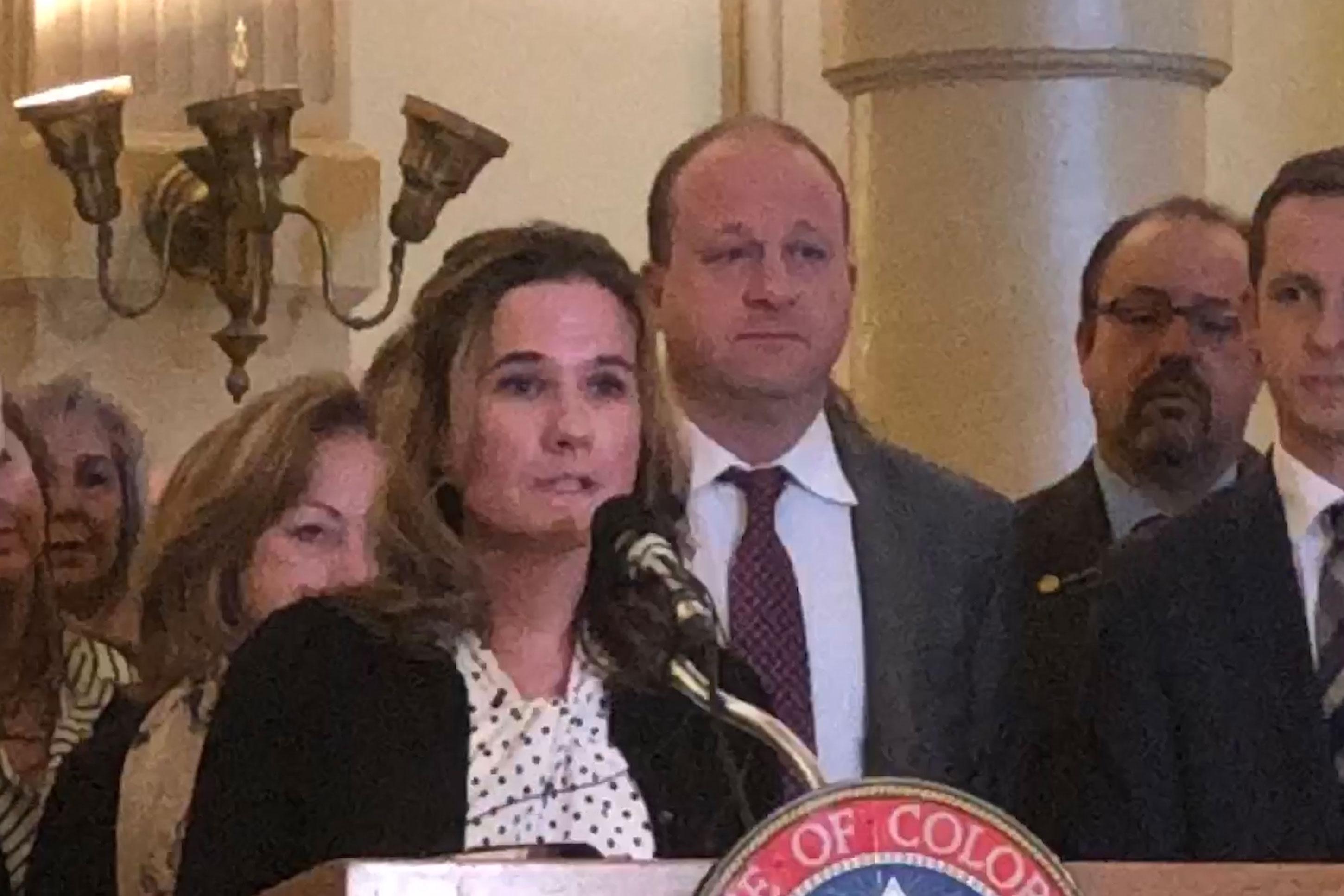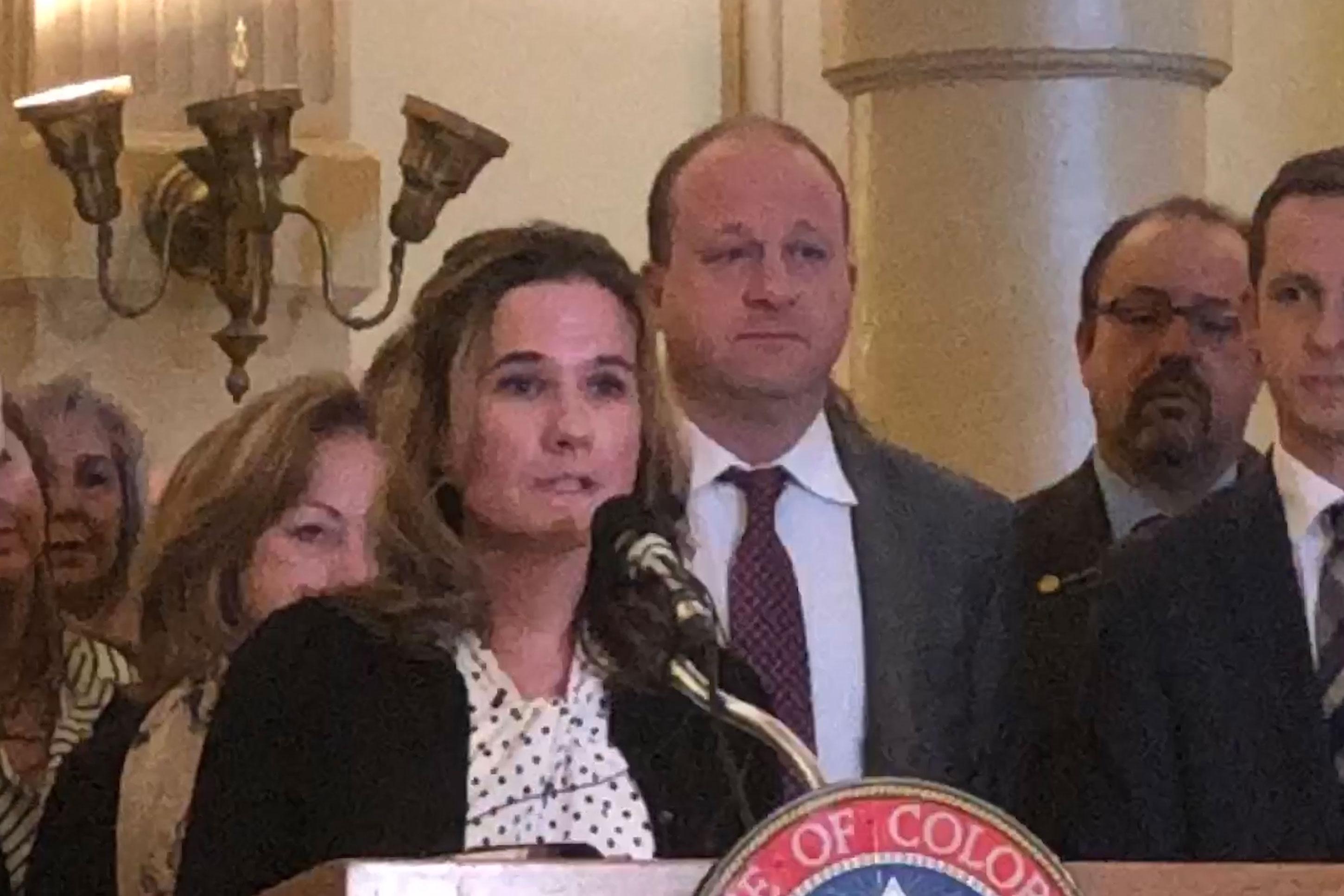

Gov. Jared Polis and Democratic leaders plan to introduce a measure to overhaul Colorado’s energy regulations in the coming days. Democrats want to put public health and safety first, and give local communities control over where and how oil and gas drilling takes place.
They also want to add a state regulator with public health expertise and require more training for oil and gas field workers. Polis said the legislation is in line with his campaign pledges.
“Putting health and safety first for communities and workers is absolutely critical,” Polis said in Thursday a news conference at the state Capitol. He added there’s no one size fits all approach as the state grows and communities abut energy development.
“Yet under current law, communities are hamstrung in creating rules that work for their local residents.”
Tension between drillers and residents have bubbled for years and culminated in a failed statewide ballot fight last November over the distance between oil and gas wells and homes and schools. At the Thursday announcement, Erin Martinez, who was injured in a home explosion in Firestone two years ago, joined Democrats to support changes to the regulations.
Martinez’ husband, Mark Martinez, and her brother, Joey Irwin, were killed in a blast that local investigators linked to a severed oil and gas flowline owned by Anadarko Petroleum.
“My home and family were destroyed because my home was next to a leaking flow line that had been left connected to the well.” She said it should not have gone undetected for four months, but should have been tested and inspected. “We need to have accuracy on oil and gas infrastructure and this needs to be publicly available.”
The energy industry says it abides by all regulations, some of which are the strictest in the country. In fact, they argue it’s especially robust because urban drilling goes through multiple review processes with local, county and state officials. Developers often adopt extra measures such as quieter drill rigs, additional air or water monitoring or pipelines to reduce truck traffic.
The Colorado Oil & Gas Association pushed back on the proposed legislation in a statement.
"While we look forward to seeing legislation that lawmakers have described as common-sense reforms, their notion that oil and natural gas regulations haven’t been modernized and strengthened in 60 years is revisionist history," association president Dan Haley said in the statement. "We have the strictest regulations in the country and they have been updated dozens and dozens of times with bipartisan support and the involvement of countless stakeholders."
Many Republicans fear these new proposals could drive up costs for the energy industry and push them to invest outside of Colorado, where the cost of doing business could be cheaper.
Other representatives of the oil and gas industry criticized Democrats for not revealing more details about the proposal.
“This should make any industry, organization, or citizen group in Colorado nervous about a transparent, public legislative process from here forward and all Coloradans should consider the negative consequences of not having a stakeholder process in the creation of new legislation,” said Colorado Petroleum Council Executive Director Tracee Bentley. “Each concept outlined during the press conference is complicated and a bill of this magnitude must be considered with immense thoughtfulness and time.”
Democrats have held meetings with the energy industry to hear general concerns but not to draft specific language. And for some Democrats who were swept into power last November, stricter oil and gas regulations are a top priority for this legislative session because they feel lawmakers have not updated the laws to match what’s happening on the ground.
“Coloradans simply do not have confidence that our laws are sufficient to protect their health and safety and they’re right,” said Senate Majority Leader Steve Fenberg of Boulder, one of the main sponsors of the legislation. “State regulators must put health and safety ahead of industry profits.”
Fenberg calls the reforms a comprehensive and common sense solution to a difficult problem.








